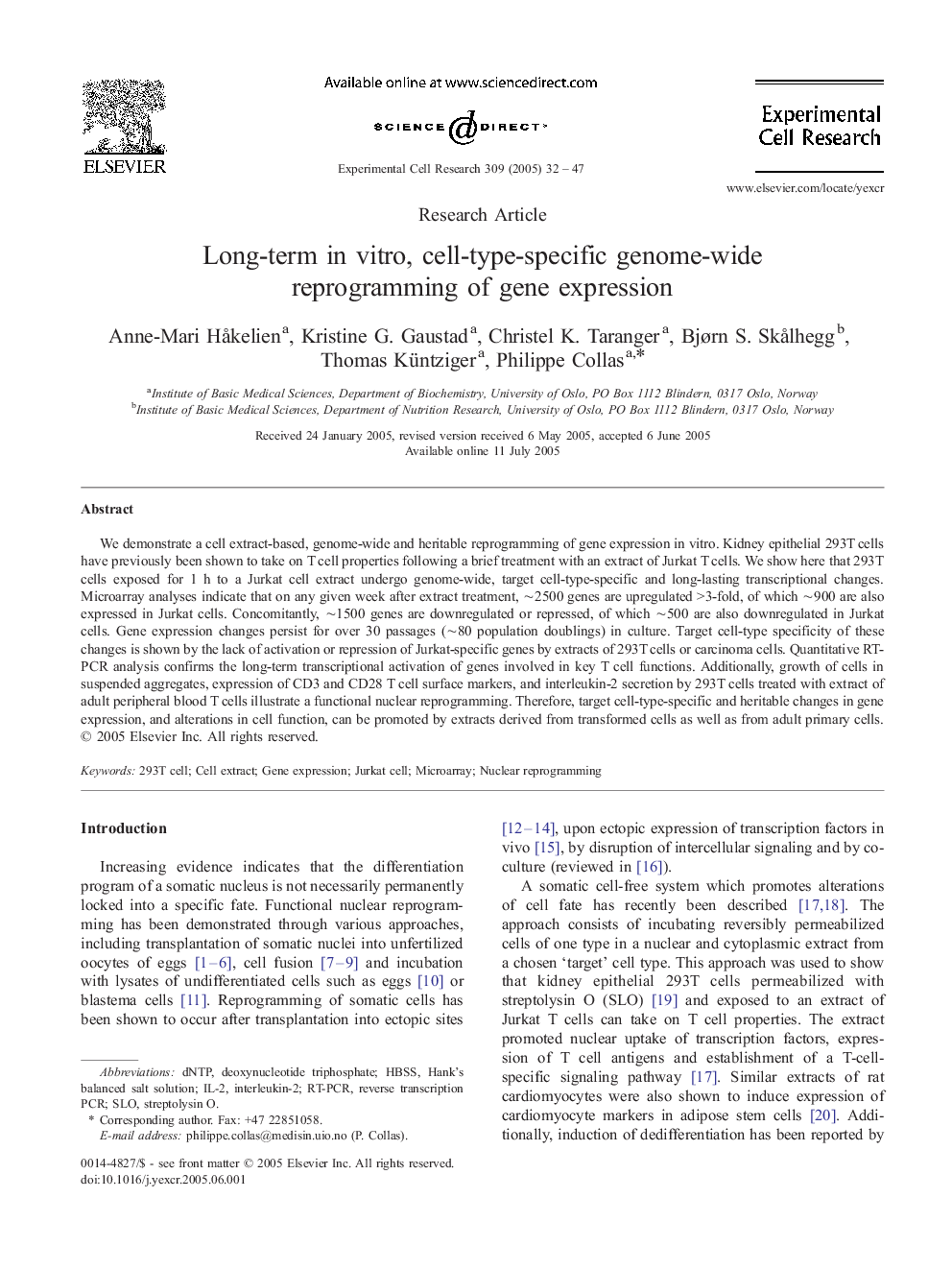| Article ID | Journal | Published Year | Pages | File Type |
|---|---|---|---|---|
| 10904837 | Experimental Cell Research | 2005 | 16 Pages |
Abstract
We demonstrate a cell extract-based, genome-wide and heritable reprogramming of gene expression in vitro. Kidney epithelial 293T cells have previously been shown to take on T cell properties following a brief treatment with an extract of Jurkat T cells. We show here that 293T cells exposed for 1 h to a Jurkat cell extract undergo genome-wide, target cell-type-specific and long-lasting transcriptional changes. Microarray analyses indicate that on any given week after extract treatment, â¼2500 genes are upregulated >3-fold, of which â¼900 are also expressed in Jurkat cells. Concomitantly, â¼1500 genes are downregulated or repressed, of which â¼500 are also downregulated in Jurkat cells. Gene expression changes persist for over 30 passages (â¼80 population doublings) in culture. Target cell-type specificity of these changes is shown by the lack of activation or repression of Jurkat-specific genes by extracts of 293T cells or carcinoma cells. Quantitative RT-PCR analysis confirms the long-term transcriptional activation of genes involved in key T cell functions. Additionally, growth of cells in suspended aggregates, expression of CD3 and CD28 T cell surface markers, and interleukin-2 secretion by 293T cells treated with extract of adult peripheral blood T cells illustrate a functional nuclear reprogramming. Therefore, target cell-type-specific and heritable changes in gene expression, and alterations in cell function, can be promoted by extracts derived from transformed cells as well as from adult primary cells.
Keywords
Related Topics
Life Sciences
Biochemistry, Genetics and Molecular Biology
Cancer Research
Authors
Anne-Mari HÃ¥kelien, Kristine G. Gaustad, Christel K. Taranger, Bjørn S. SkÃ¥lhegg, Thomas Küntziger, Philippe Collas,
